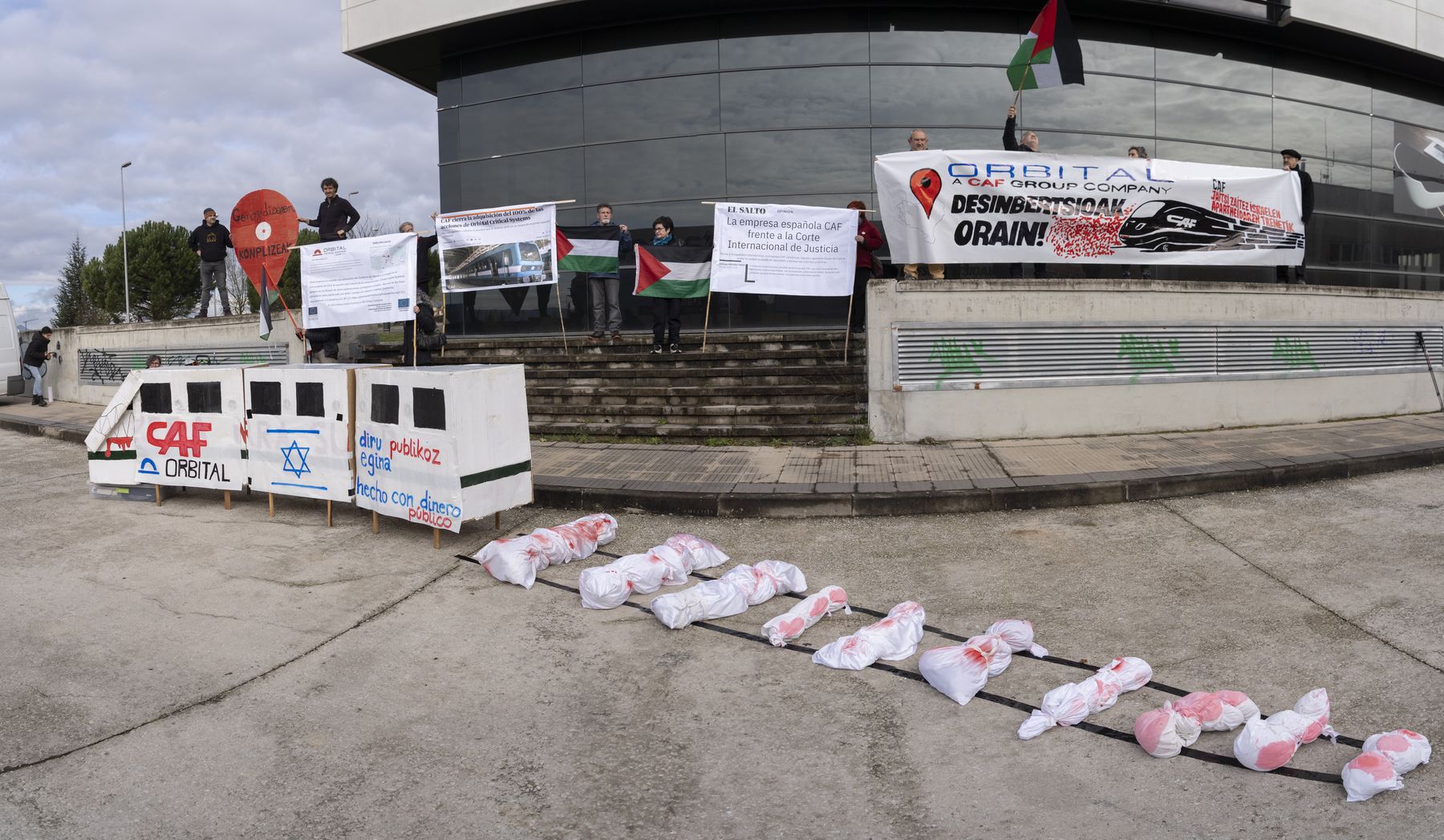"I'm not a debtor of what my Falangist grandfather did."
- The Altsasuarra writer settled in Pamplona (1964) has just published the book Gurea falangista (Susa), a chronicle of the War of 36. On Lemoa's front, his wife's uncle died and began to trace his trail, finding himself on the way with his grandfather's crude past. Shock. And he's had the courage to take him to a book, stirring up the memory of the family and bringing interesting to the memory of war.

At 80, her mother-in-law passed her older brother's notebook. When was that? Did you have the possibility to make the book there? My
wife's mother, María Antonia Fernández, passed the notebook to me nine years ago, when she was 80 years old. Madam, I knew that a son in that house died in the war and left one day a day. As well as a journalist, I'm also a training historian, and I wondered about this, but in that house, I was told not to be asked. When she was 80 years old, the deceased's little sister gave me a notebook. “I have this notebook, something simple written by my brother. Take it, do whatever you want.” And I interpreted that he said to me, "Write something about this," or "research, look." When his sister was four years old when his brother died in the war, he didn't know him, but he left a big mark on the family.
Then he asked you about the subject? To see what you're in?
Yes, multiple times. When Hernani's book I was published. We presented it at the Book Fair and he came. For him, the book and that story have been important things.
Altsasuarra Luis Fernández, 17, decided to go to war with the Falangists, made them on the front 18. He struggled to go to war. He was previously a PNV militant. How has everything been understood?
It's one of the questions that has led me to ask the book over all these years. The first question is how a 17-year-old can take weapons. I still find it difficult to understand. And then, how and why the Falangist. It's not easy to understand, but it has its answer. He noted in the book that, as a result of a dispute in the City Hall, he was unable to obtain the post of Municipal Secretary. He asked several, including the UNEP Chairman of the PNV, for assistance: “As I am also a PNV militant, he will not deny me that help,” he asked. In those years, the PNV was in favor of the republic, but known PNV militants joined the rebels. Some did not understand how the PNV joined the Communists. The PNV also had since the Carlism and many Carlists traveled with Franco in Navarra.
And when he was researching Luis Fernández, he met his grandfather's theme. He says in the book that Luis's brother Santi reported it to him at a traffic light in Bilbao: “Yes, my brother went to war, there he died with the gun in his hand. In the village others had put the pistol on the waistline. Paul Amillano, for example.” What a flash!
I was with Santi six or seven years ago in Bilbao. For me, grandfather's story has always been a source of curiosity. He was in the war in Morocco and knew he was a supporter of Franco, but he didn't think it stood out at all. Santi was open and I spoke to him several times, but on that desk, when he put that on the traffic light, I was deeply surprised because he did not tell me “his grandfather walked...” Paul Amillano said as if he had any other name. I wondered why he threw it like this, but it didn't go on, and I didn't ask any more. The book was still talking about Luis Fernández, but there was a warning: grandfather with the pistol at the waist...
"I went into the book of that excellence of an apparently objective and distant journalist, and I've ended up in the mud."
But much earlier the issue also came to him, along with his mother, Navarra 1936. When they found the book From Hope to Terror, in the 1980s [published in 1986].
It happened at a fair in Irun's book. My mother then had a small book store, and I was studying history. They took the book in hand and many Alsasua names appeared. My mother told me the name to look and I told her there was a Pablo Arellano. Her mother got scared and left. I kept saying that it was not Amillano, but Arellano, and he told me that that would be our grandfather. I was very disgusted and then he told me not to write about it while he was alive. The book didn't say much, it was dedicated to repression, but it was another warning. Then there was more obvious data.
Then he asked him to never write about it. He says he recently lifted the ban and asked for forgiveness in the book.
We were eating both of them, I was going to tell him that he was talking about book, etc., and my mother told me that she forgave me what she had said at that book fair. Uf, it's hard for the mother to apologize to herself! I told him I didn't have to apologize, and he said it was my job and I wasn't going to tell me what to write or not, what I wanted to write.
Little by little, the listeners and the grandfather were gathered. There is, for example, the War Council that Ricardo Urrizola wrote in 2019. Military Injustice in Navarra. Book 1936-1940.
I kept researching: the newspapers of the time, the works carried out with memory at the Altsasu Institute, the works of José María Jimeno Jurio... I was looking for the latter's conversations in Altsasu a lot, but I didn't find them, and I thought they had disappeared. In the end, he addressed me to Roldán Jimeno, who left me these tokens. The recordings seem to have disappeared. After a lot of tracking, I found two or three other passages of my grandfather. One of them was Republicans Martín Somocurcio and Alfonso Chicharro. They went to war with UGT and were shot in Santoña. His relatives, who for me was the third clue, said that they had gone from Altsasu to sign them, including grandfather.
From Jimeno Jurio's files he could not deduct that our grandparents were identified and shot as a result. Therefore, I asked at the Institute of Memory of the Basque Country and there they told me that the grandfather did not appear as a witness in the trials of Somocurcio and Chicharro. For me, there was a big difference whether I'd been a witness in those trials or not. But it was another fact about the abuelo.Sin embargo, the book was still dedicated to Luis Fernández.
And when does the base of the book change?
I handed him over to a fellow journalist to read the draft, Iñigo Astiz, who said: “Alberto, I think you’re hiding something, I think here’s another character, your grandfather.” And with Luis Fernández's almost written book, this same year I started in my grandfather's mosque. There I remembered Ricardo Urrizola's book, where my grandfather also appeared on two or three occasions. I went back to the sources of those mentions, to the military archives, and I reburned the eyes of those thousands, and in them I found my grandfather testifying in three other trials.
In the case of a court he gives several information and the judge asks him how he knows it, and he replies that as he ‘liberated’ the territories of Bizkaia and Santander he persecuted the Republican Altsasuarras and collected information about them. Then I realized that those who were saying grudgingly were proved, because the grandfather himself recognized in the signed declaration of his hand. This made me change the approach of the book, about four months ago, that almost everything was over. I completed the information and incorporated my grandfather as the protagonist.
Perhaps I was ready by then, but I suppose it would be a great shock to find that recognition.
I wasn't ready. I came from other stories, families, transmissions... Now it's also our family, now we all know it, but we didn't know it before. This has been a shock. He suddenly wonders: “How can our grandfather make these decisions with five children, the woman of Alsasua, who at the age of 13 comes from a small town in the area of Tafalla...? How have they managed to completely conceal this transmission?” I asked in the family and nobody knew: neither the mother nor the old guys... and the latter could be right to hide or forget, but the old cousins did not. All of this raises a lot of questions.
.jpg)
He also commented on it in the presentation of the Association of the Horse of Pamplona, and it was hard for him to understand why the grandfather acquired that denouncing attitude. Miguel Sánchez Ostiz has on the subject El escarmiento. That is, spread the most crude panic on the opponent to radically cut off his possible response. That's why you also speak in the book.
Yes, but not everything can appear out of hatred. Perhaps in the case of Luis Fernández and Pablo Amillano this humble and blind tendency to receive and fulfill orders, but I do not like to take the blame on them. I think that, in a very polarized era, on one side and the other, there was a great fear of being among the losers. This does not explain everything either, because there were also others who feared and did not have the behavior of both. If the Republic had won, perhaps it would have shot its grandfather, because he was marked by what I have later known. In search of an explanation, I put several parts on the table, because I believe that is our function, without any other moral judgment, because we agree on the facts, that was barbaric.
He was about 11 years old when Grandpa died. How do you remember it?
He was a normal grandfather, of those poor Navarros, who dedicated himself to “goddesses” because half the body was paralyzed by an embolism, had no patience... But my grandfather's transmission I received it mostly from my mother, and for my mother it was a fairy, a father who, upon leaving the foundry, had some milk in a cup ... Subsequently, no emphasis was placed on policy. It is often mentioned that executors of orders are normal people.
"The acquaintances of my environment are approaching me saying that ‘my grandfather was also’, with nervousness, as if they were coming out of the closet."
Among the questions you ask are also: “What right do
I have to get all this that has been silent now?” And my answer is clear: I have to tell it, because in the short term it will be better for everyone. If my mother had asked me not to leave, she wouldn't have written it for her, but at the request of another person in the family, I think she would have fired him equally. I think so. If I get into the role of a sharp journalist, that's what comes out to me, but it's true that this hurts, and there are older people there ... So who am I to get dirty with this scab at the end of his life? No one in the family has told me not to do this, the family's response has been very good, but I know everyone is processing all of this differently. In addition, I believe that these kinds of stories are very common throughout the Basque Country. It's our story. There are many grandparents we have and I think we have unwittingly concealed it – shame, fear….
You are quieter.
Yes. I'm still close to the subject, because in my environment they're creating small explosions. The acquaintances of my environment are approaching me saying that “it was also my grandfather,” with nervousness, as if they were coming out of the closet. We'll see how we go. I went into the book of that excellence of a seemingly objective and remote journalist, and I ended up in the mud. The process has been very intense, but I think I have turned around that artifact that I have had and that I have been able to explain in the book.
“If transmission is not worked, curiosity is broken,” he says. What lessons can we draw from the work of the memory of the War of 36 for the memory of the Basque conflict that we now live in?
Silence is not worth it, it is not worth it, because it leaves the doors unclosed. I'd rather know what our grandfather did, but I'm not a debtor of what he did. I have not taken anything out of what my grandfather has done, another thing would be that he would have enriched himself, because there will be cases like these. When I was talking about this with a family, I was nervous and she told me I knew what I was going to answer if someone says that. “At least I know what my grandfather did, and that has been brought out by my family. Do you know what your grandfather did?” We are guilty of what we have done, not what our ancestors did.
And he has signed for the first time Alberto Barandiaran Amillano, with his second surname included.
Yes, I played. I'm also Barandiaran Amillano. My grandfather was also another grandfather.
Otsailaren 24tik eta martxoaren 1era bitartean, astebetez 60 lan proiektatuko dituzte Punto de Vista zinema dokumentalaren jaialdian. Hamar film luze eta zazpi labur lehiatuko dira Sail Ofizialean; tartean mundu mailako lau estreinaldi eta Maddi Barber eta Marina Lameiro... [+]
Adingabeari sexu abusuak era jarraituan egin zizkiola frogatutzat jo du Bizkaiko Lurralde Auzitegiak.
1989tik 2014ra, Frantzia mendebaldeko hainbat ospitaletan egindako erasoengatik epaituko dute. 75 urte ditu Joel Le Scouarnec zirujau ohiak, eta espetxean dago beste lau sexu eraso kasurengatik.
Iratxeren Bidasoaldeko Lagunak ekimenak deituta, dozenaka lagun kalera atera ziren atzo Iratxe Sorzabal preso politiko irundarraren absoluzioa eskatzeko eta behingoz etxera ekartzeko, torturak salatzeaz gain.
Azken asteetan François Bayrou Frantziako lehen ministroaren harira ezaguna egin bada ere, aspalditik dira albiste Betharram eskola katolikoko apaizen gehiegikeriak. Lau urtez barnetegian ikasle izan zen Paxkal Indo lapurtarrarak Euskal Irratiaki adierazi eta ARGIAk... [+]
Greenpeaceko kideak Dakota Acces oliobidearen aurka protesta egiteagatik auzipetu dituzte eta astelehenean aztertu du salaketa Dakotako auzitegiak. AEBko Greenpeacek gaiaren inguruan jasango duen bigarren epaiketa izango da, lehenengo kasua epaile federal batek bota zuen atzera... [+]
Otsailaren 17an Txinako Alderdi Komunistaren arduradun gorenak bildu ziren bertako enpresa pribatu handienen zuzendari nagusiekin. Ez da ohikoa aldi eta areto berberean Huawei, BYD, New Hope, Tencent, SWSC, Yushu, Xiaomi edo DeepSeek bezalako konpainien nagusi gorenak bilduta... [+]
Ikerketa bat egin dute Alemanian, hauteskundeen atarian: kontuak sortu dituzte TikToken, X-n eta Instagramen, eta aztertu egin dute algoritmoak zer nolako edukiak erakusten dituen. Guztietan, algoritmoak eskuinera eta eskuin muturrera jotzen du gehien, TikToken nabarmen.
Ekitaldian, Mileik motozerra bat oparitu dio Muski, murrizketa sozialen sinbolo eta aldarri gisa.
Laborantzaren Orientazio Legea pasa den astean ofizialki onartu du Frantziako Parlamentuak. Ostegunean Senatutik pasa da azken aldikoz. Iazko laborarien mobilizazioen ondotik, aldarrikapenei erantzuteko xedea du lege horrek. Aldiz, ingurumenaren aldeko elkarteek azkarki salatzen... [+]
Hizkuntza bizia orain! egin dute oihu galizieraren aldeko milaka manifestarik Santiago de Compostelan (Galizian) joan den igandean. 2024ko hondarrean, azken inkestako datuek pozteko arrazoirik ez zuten eman: ezagutzak eta erabilerak, biek, egin dute atzera. Galera handiagoa da... [+]
Etxera itzuli ahal izan diren arren, joan den azaroan kaleratu zuten Astrabuduko familia berriz ere arriskuan dago. Uribe Kostako Etxebizitza Sindikatuak salatu du mailegu-enpresa berriz ere saiatzen ari dela kanporatzea gauzatzen, oraingoan, desokupazio-enpresa bat... [+]
Karen Daniela Ágredok dioenez, zortzi bat ordu eman zituen ziegako zoruan etzanda Ertzaintzak ospitalera eraman aurretik. Segurtasun sailburu Bingen Zupiriak berak eskatu du Eusko Legebiltzarrean agerraldia egitea.









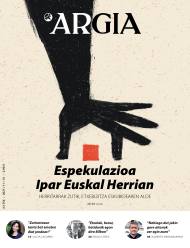

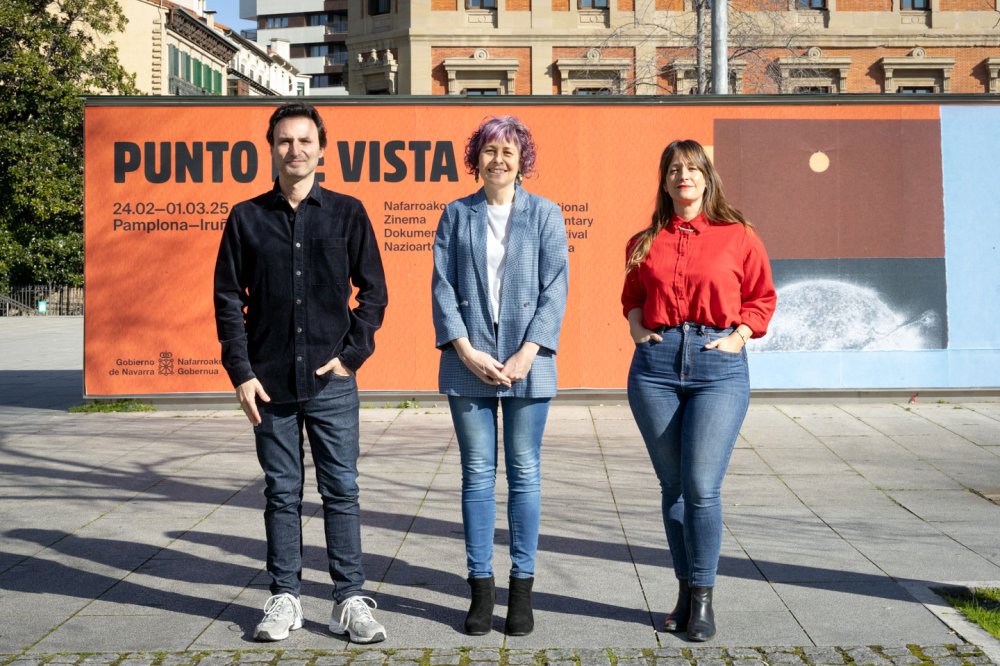
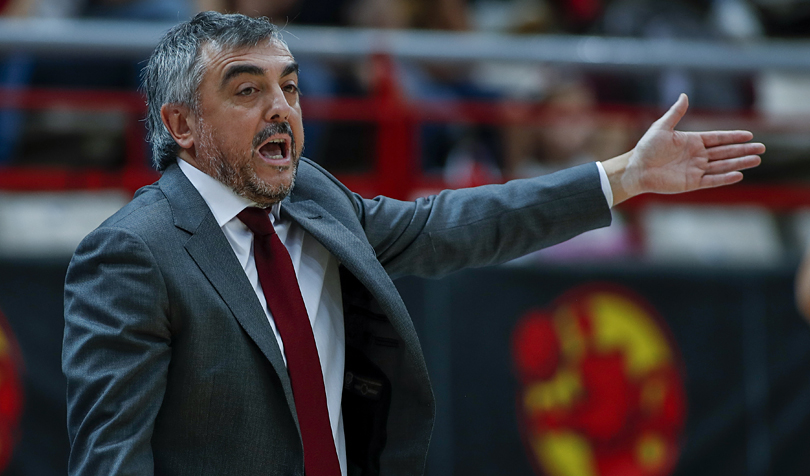



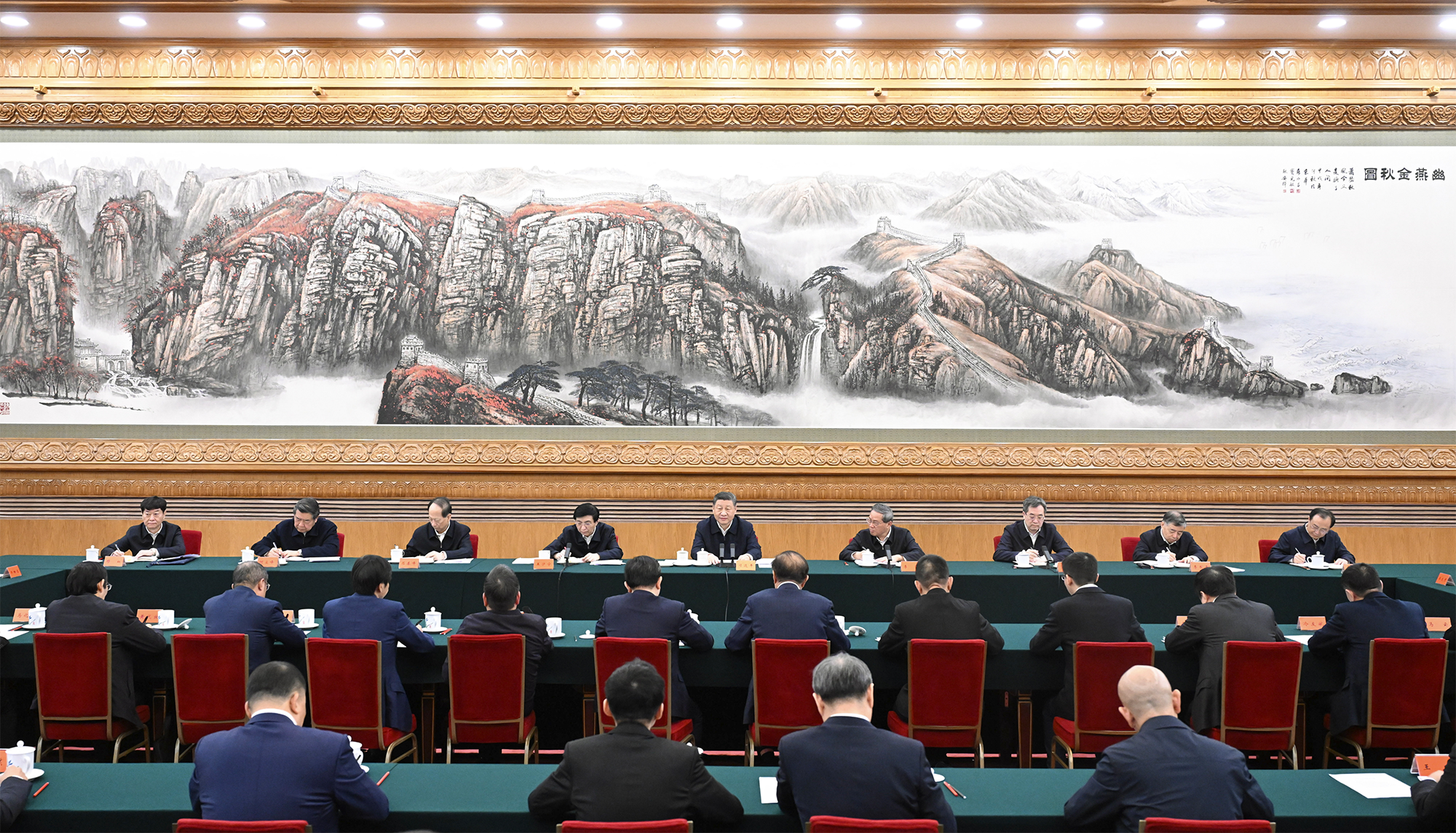


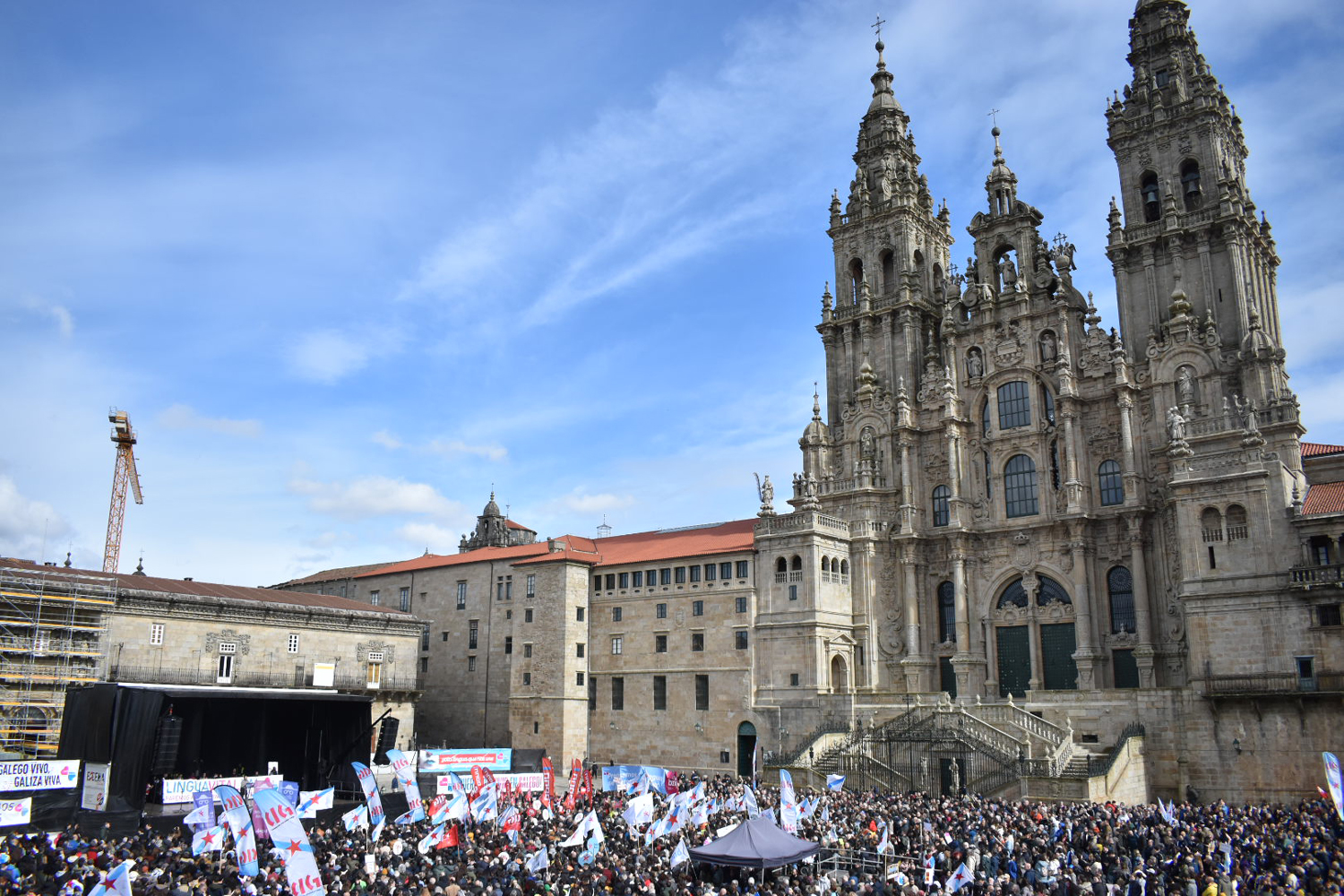
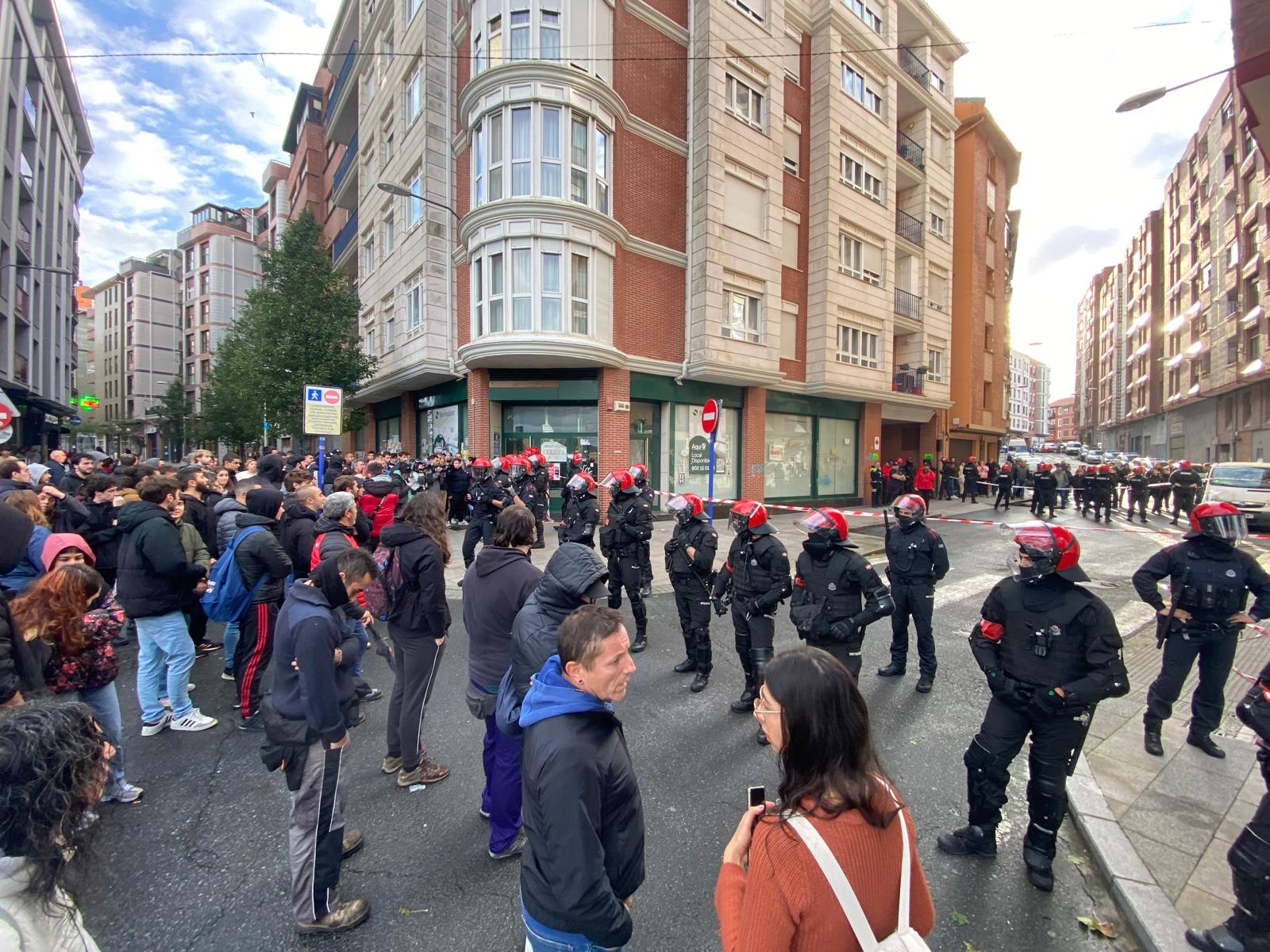
.jpg)
